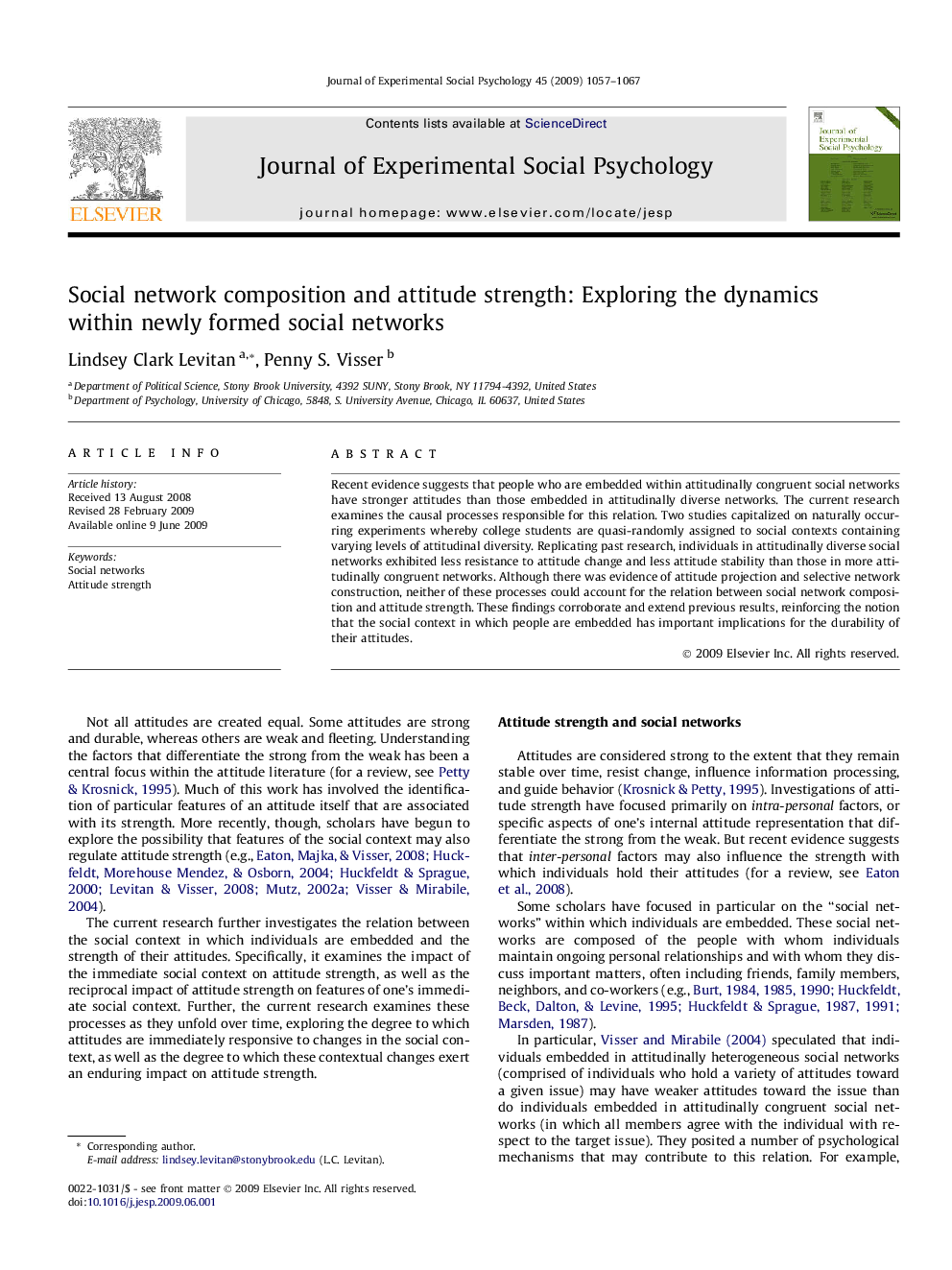| Article ID | Journal | Published Year | Pages | File Type |
|---|---|---|---|---|
| 948752 | Journal of Experimental Social Psychology | 2009 | 11 Pages |
Recent evidence suggests that people who are embedded within attitudinally congruent social networks have stronger attitudes than those embedded in attitudinally diverse networks. The current research examines the causal processes responsible for this relation. Two studies capitalized on naturally occurring experiments whereby college students are quasi-randomly assigned to social contexts containing varying levels of attitudinal diversity. Replicating past research, individuals in attitudinally diverse social networks exhibited less resistance to attitude change and less attitude stability than those in more attitudinally congruent networks. Although there was evidence of attitude projection and selective network construction, neither of these processes could account for the relation between social network composition and attitude strength. These findings corroborate and extend previous results, reinforcing the notion that the social context in which people are embedded has important implications for the durability of their attitudes.
